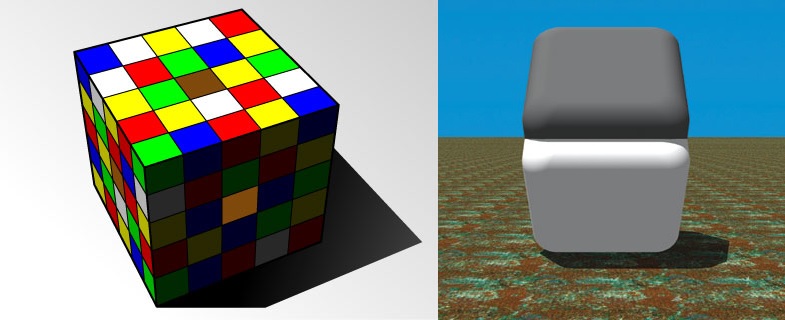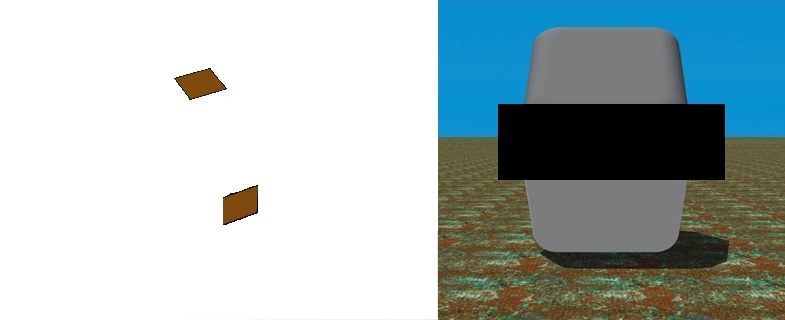Every week we’re bringing you recommendations for great movies or TV shows streaming on Netflix. This week’s selection is…
“Brain Games” (7 out of 10) – Hosted by Jason Silva; Narrated by Neil Patrick Harris; Presented by National Geographic.
“Brain Games” is considered reality television but leans more toward educational programming than scripted reality drama. Rather than following a cast of “real” people attempting to navigate the apparently difficult task of being decent human beings, each episode focuses on and attempts to expose one of the weaknesses in the way our brains work.
On average, the human brain makes up about 2% of overall body mass, or roughly three pounds, but that small percentage of your overall mass is responsible not only for regulating and controlling your body’s functions but also taking in all of the internal and external stimuli to create a picture of reality.
Due to the massive amounts of data it is required to process in real time, you brain takes short cuts based on previous experiences to create the consistent streaming story that is your life and experiences.
All things considered, your brain is incredibly impressive; it is a massive achievement in biological computing power unmatched by even our greatest technological efforts.
Using the fourth most advanced computer in the world, The K computer at the Riken research institute in Japan, containing 83,000 processors, researchers were able to mimic one second of one percent of a brains processing power, it took forty minutes.
But in some ways your brain is inferior to even antiquated technology because the world and challenges by which it evolved were and are very different from what synthetic computers have been developed to deal with. In short, it’s pretty easy to trick those feeble few pounds of gelatinous mush, and it happens all the time.
The first season, only three episodes long, focuses on the weaknesses in your memory, the suppression of details when focusing on a task, and optical illusions, all of which are examples of how your brain constantly rewrites your history in order to maintain a cohesive reality. What you see or experience is not necessarily what you get.
The world got a pretty big taste of this when a picture of a certain dress was posted to social media and went viral when viewers couldn’t agree on its color. This discrepancy in subjective experience occurs because vision doesn’t actually happen in your eyes, it happens in your mind. When you look at an image your brain has to make assumptions about what you’re seeing and plugs in data from previous experience to create a picture. The majority of people (over 70% by some estimates) perceive the dress as being in shadow, your brain knows that shadows make things appear darker than they actually are and corrects for it, this is why many people see the dress as white and gold. A smaller percentage see the image as being exposed to a light source, if your brain makes that assumption it color corrects in the opposite direction and you see it as blue and black. While most of us are tired of seeing, hearing, and talking about the dress, it is a perfect example of the subjective nature of your reality and the viral nature of it makes for a statistically significant sample size, which makes it work talking about at least for a little while.
Two examples from the first episode of “Brain Games” explain this phenomenon in easy to understand terms, though it doesn’t make them any less mind bending.

In the image on the left the orange square in the center of the front pane and the brown square in the center of the top pane are actually the exact same color, in the image on the right both sections of the monolith are the same shade of gray. Your brain is making assumptions about the shadows present in the images and color correcting accordingly. In both cases what your brain is telling you is objectively false. Below is the exact same image except that using the wonders of MS Paint I have removed the offending stimuli responsible for the cognitive glitch.

What makes the series so entertaining is how interactive it is, “Brain Games” doesn’t just point out the flaws in your mind’s algorithms, it forces you to acknowledge them by playing along with the program. A weekend binge session might leave you doubting everything you’ve ever known, but that won’t stop me from making the recommendation.
By bringing attention to the exposed exhaust ports of our brains, we can take precautions to prevent their exploitation before the whole stations gets blown to smithereens, or at the very least we can be aware of them and derive a little entertainment value out of our wildly inaccurate perceptions.